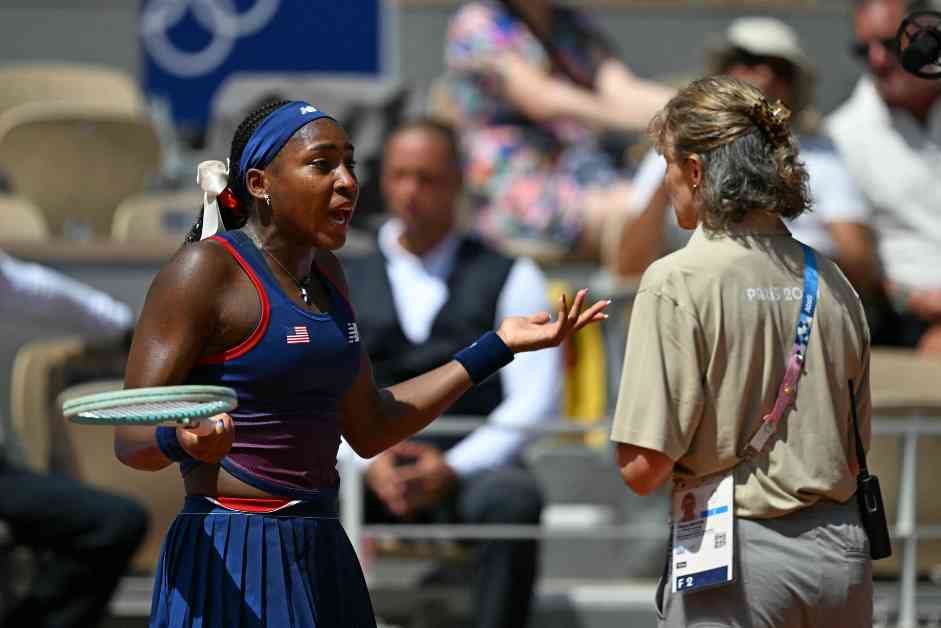Coco Gauff, a tennis player from the United States, faced a controversial line call during her match against Donna Vekic from Croatia at the Olympic women’s singles tournament. The incident sparked a heated argument as Gauff believed the point should have been replayed. Let’s delve deeper into what transpired, the rules surrounding the situation, and Gauff’s emotional response to the official decision.
During the match, at a crucial moment with Vekic leading 3-2, a linesperson called Vekic’s shot out, causing Gauff to pull up on her follow-through and hit the ball into the net. The chair umpire overruled the call, awarding Vekic the point, which ultimately gave her a break of serve. This decision was based on the ITF rules that govern Olympic tennis tournaments, specifically Case 7, which deals with overruling line calls.
The rule states that if an umpire calls a ball out and then corrects it to be in, they must determine if the original call hindered either player. If it did, the point should be replayed; if not, the player who hit the ball wins the point. This places umpires in a challenging position as they must assess whether the call affected the player’s swing, leading to subjective judgments.
Gauff strongly contested the decision, arguing that the call disrupted her shot, while the umpire disagreed. She expressed her frustration, citing previous instances where similar incidents occurred, including at the French Open. Gauff advocated for the use of video replays in tennis to prevent such controversies and ensure fairness in the game.
It’s worth noting that Vekic also faced challenges during the match, dealing with crowd reactions and the intense atmosphere following the disputed call. She acknowledged the complexity of the situation and the impact it had on her focus during crucial points.
The absence of video replay technology at the Paris Olympics raised questions about the accuracy and fairness of line calls in tennis. While some tournaments have adopted computerized line calling, clay-court events have been hesitant due to concerns about raised lines. However, advancements in technology have addressed these issues, making computer line calling more reliable than human judgments.
In conclusion, the incident involving Coco Gauff and Donna Vekic shed light on the complexities of line calls in tennis and the need for enhanced technology to ensure fair play. The emotional response from Gauff and Vekic’s perspective underscored the challenges faced by players in high-stakes matches affected by controversial decisions. As the sport evolves, implementing video replays could mitigate such controversies and uphold the integrity of tennis competitions.




